 January 25, 1996: Rumors circulate that Sun Microsystems is in talks to acquire Apple.
January 25, 1996: Rumors circulate that Sun Microsystems is in talks to acquire Apple.
With Sun at the peak of its power, and Cupertino struggling, the rumored $3.89 billion deal would see Apple snapped up for between $5 and $6 a share.
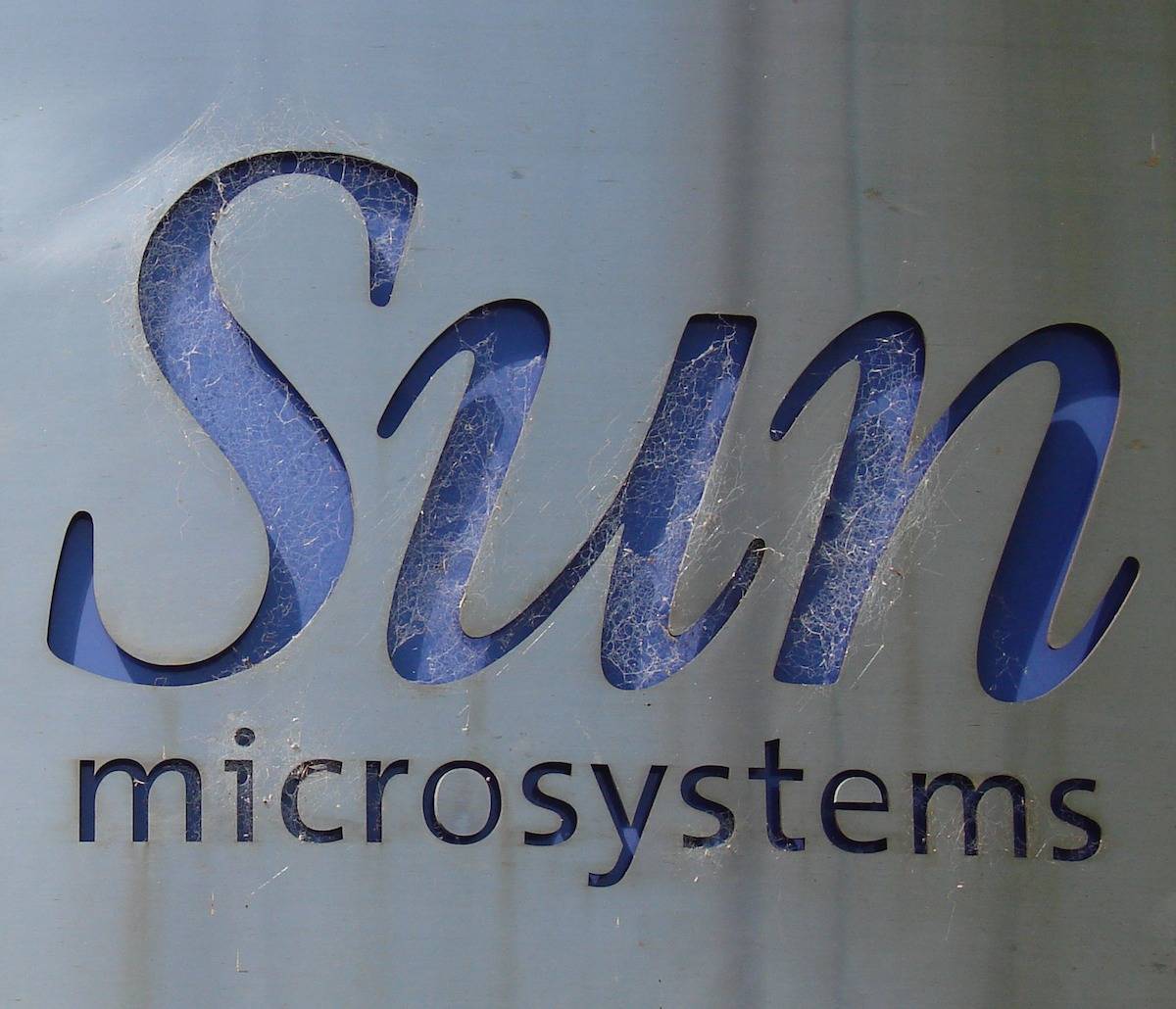
 January 25, 1996: Rumors circulate that Sun Microsystems is in talks to acquire Apple.
January 25, 1996: Rumors circulate that Sun Microsystems is in talks to acquire Apple.
With Sun at the peak of its power, and Cupertino struggling, the rumored $3.89 billion deal would see Apple snapped up for between $5 and $6 a share.
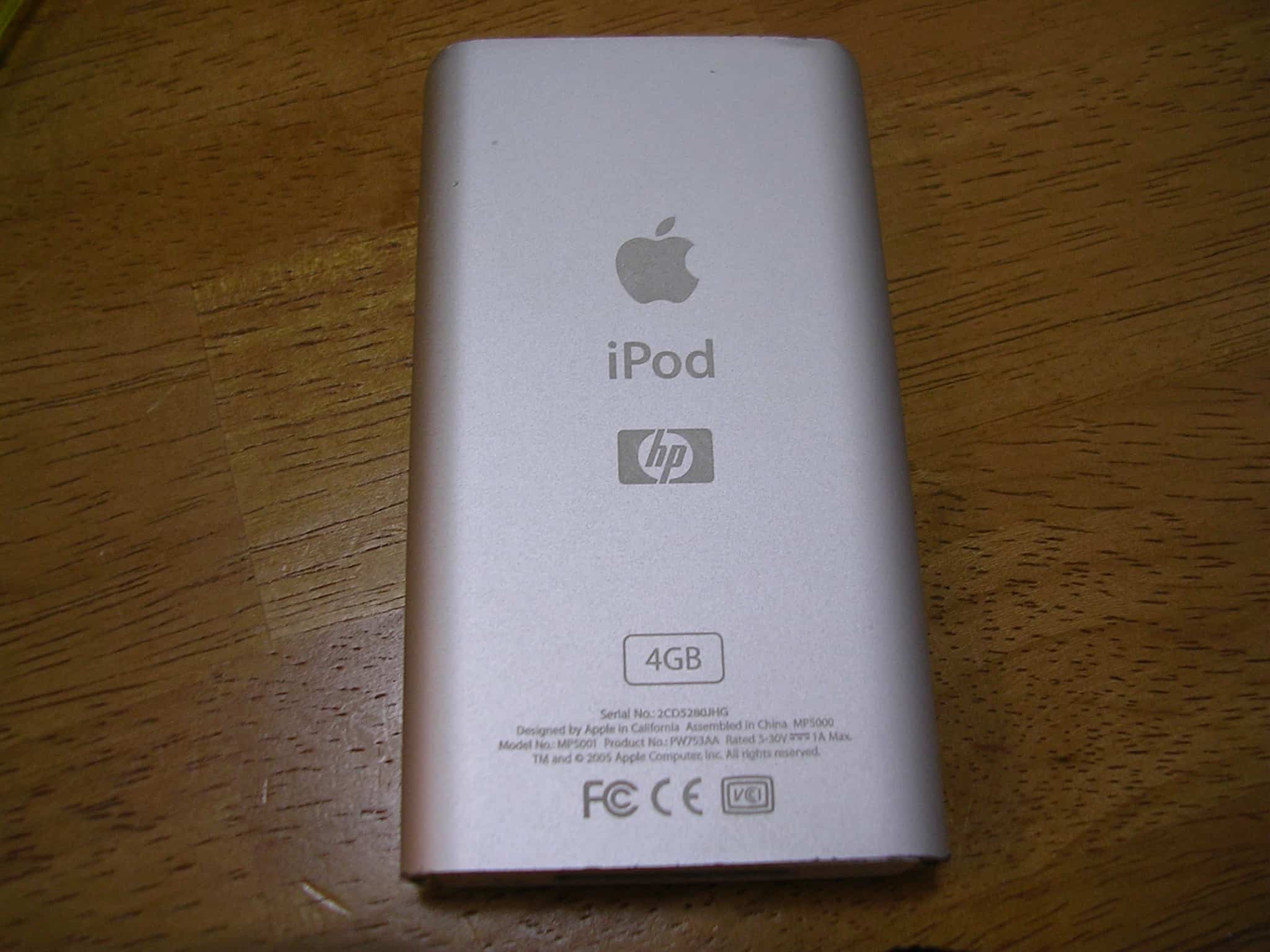
 January 8, 2004: The clumsily named iPod+HP, a Hewlett-Packard-branded iPod, debuts at the Consumer Electronics Show in Las Vegas.
January 8, 2004: The clumsily named iPod+HP, a Hewlett-Packard-branded iPod, debuts at the Consumer Electronics Show in Las Vegas.
Shown off by Hewlett-Packard CEO Carly Fiorina, the prototype device is blue, the color used for HP’s branding. By the time it arrives on the market later that year, however, the digital music player is the same shade of white as the regular iPod. The device doesn’t hang around for long, either.
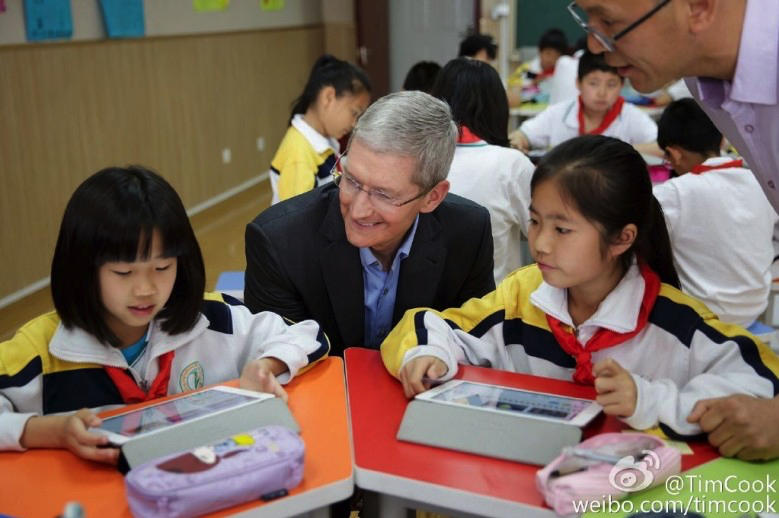
 December 22, 2013: After months of false starts, Apple finally secures a deal with China Mobile to bring the iPhone to the world’s largest telecom company.
December 22, 2013: After months of false starts, Apple finally secures a deal with China Mobile to bring the iPhone to the world’s largest telecom company.
With 760 million potential iPhone customers in the offing, the deal shapes up as Apple’s most important yet for growing its brand in China. In fact, Apple CEO Tim Cook says the country will soon become the company’s biggest market.
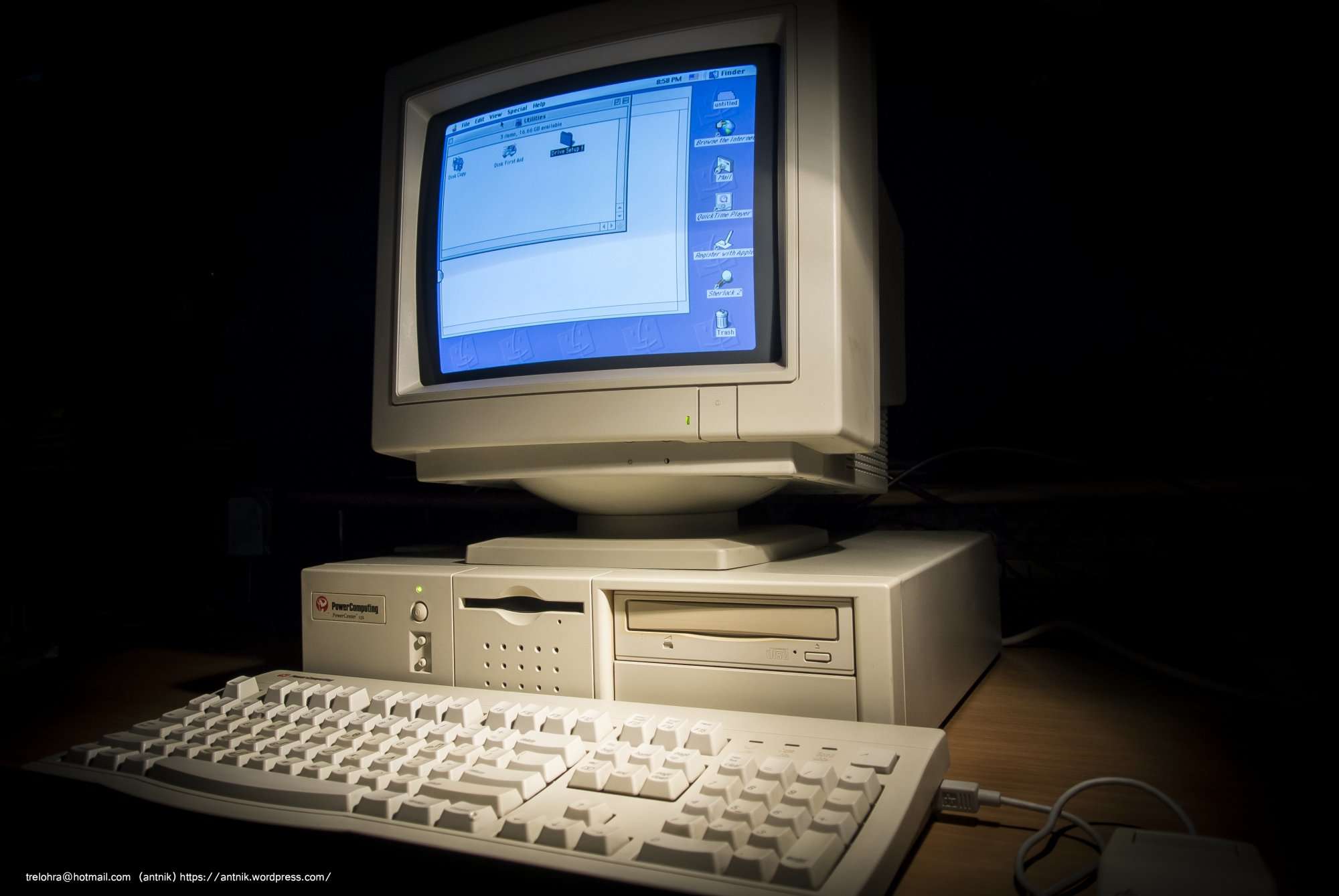
 December 16, 1994: Apple Computer inks a licensing deal with Power Computing, for the first time allowing a company to produce Macintosh-compatible computers, aka “Mac clones.”
December 16, 1994: Apple Computer inks a licensing deal with Power Computing, for the first time allowing a company to produce Macintosh-compatible computers, aka “Mac clones.”
With falling market share, and longtime rival Microsoft steaming ahead thanks to its software licensing strategy, Apple executives think the only way to compete is for the company to allow its operating system on third-party Macs. Of course, it doesn’t turn out exactly like that.
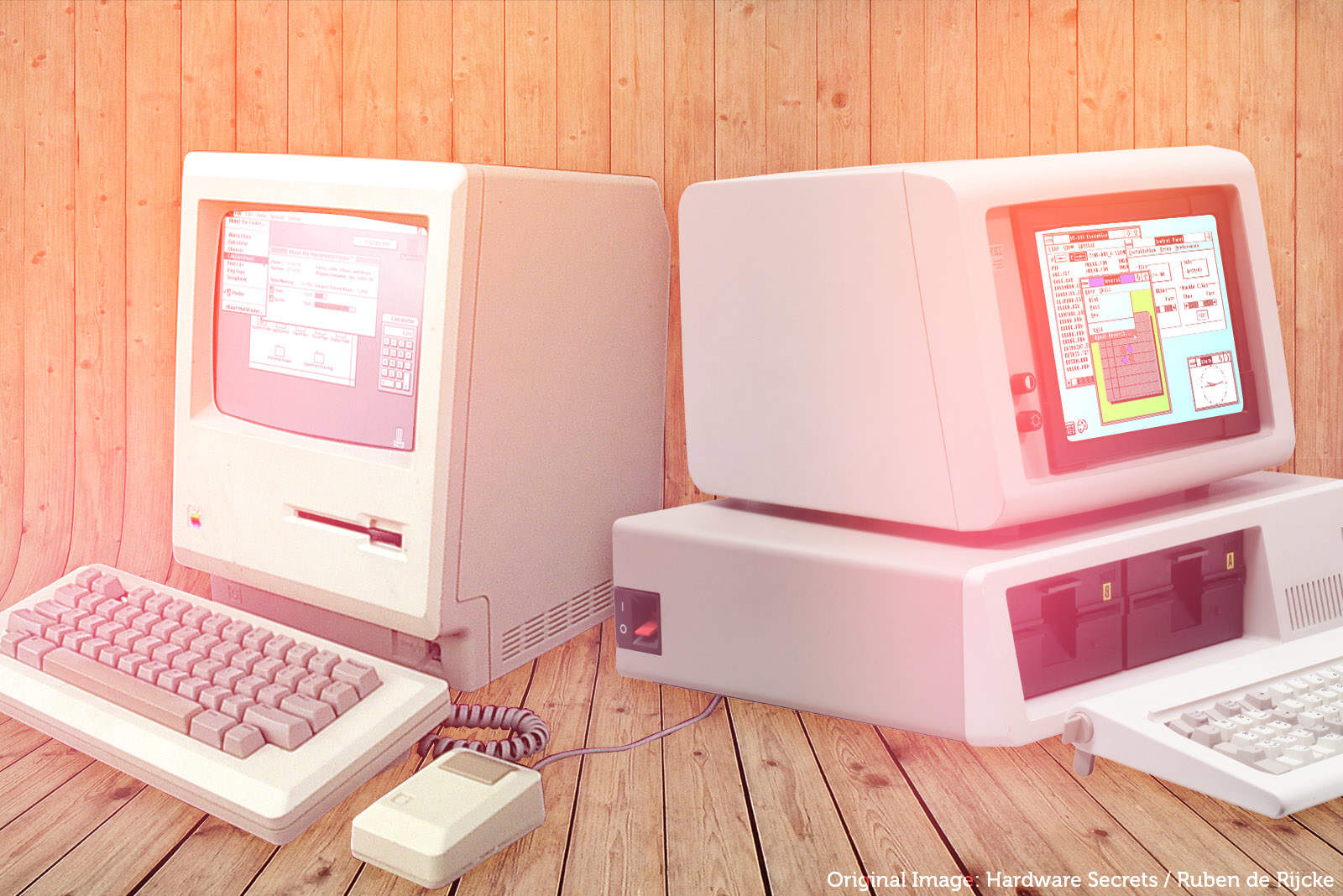
 November 21, 1985: Following Steve Jobs’ departure, Apple comes close to signing its own death warrant by licensing the Macintosh’s look and feel to Microsoft. The Apple-Microsoft deal — struck by Microsoft co-founder Bill Gates and Apple CEO John Sculley — comes hot on the heels of the Windows operating system’s release.
November 21, 1985: Following Steve Jobs’ departure, Apple comes close to signing its own death warrant by licensing the Macintosh’s look and feel to Microsoft. The Apple-Microsoft deal — struck by Microsoft co-founder Bill Gates and Apple CEO John Sculley — comes hot on the heels of the Windows operating system’s release.
The pact gives Microsoft a “non-exclusive, worldwide, royalty-free, perpetual, nontransferable license to use [parts of the Mac technology] in present and future software programs, and to license them to and through third parties for use in their software programs.”
Oh, boy!
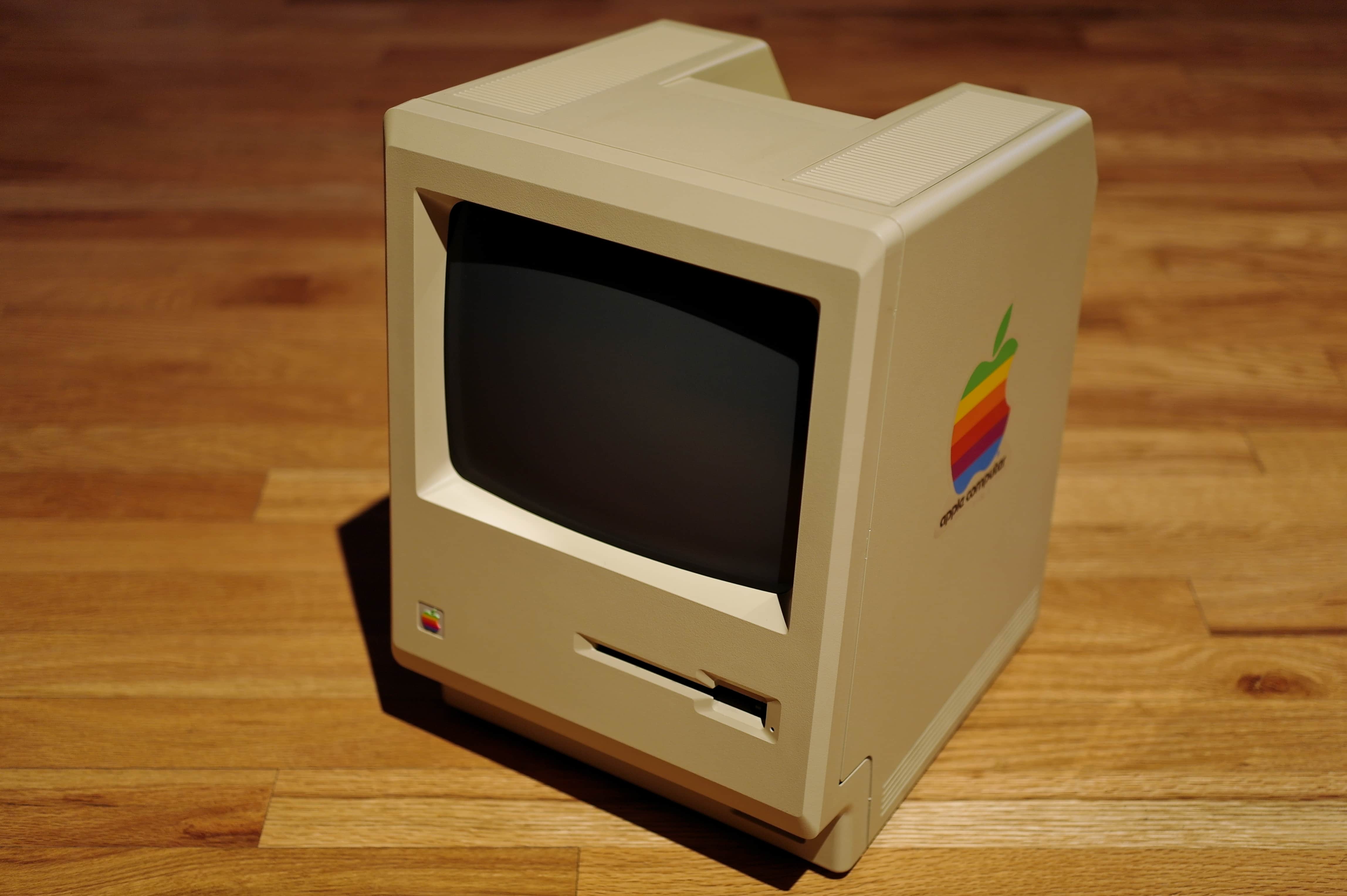
 November 16, 1982: Intent on giving his company’s upcoming personal computer a memorable name, Apple co-founder Steve Jobs pens an impassioned plea to audio company McIntosh Laboratory. In the letter, he asks permission to use the name “Macintosh.”
November 16, 1982: Intent on giving his company’s upcoming personal computer a memorable name, Apple co-founder Steve Jobs pens an impassioned plea to audio company McIntosh Laboratory. In the letter, he asks permission to use the name “Macintosh.”
You can probably guess how the resulting discussions turned out!
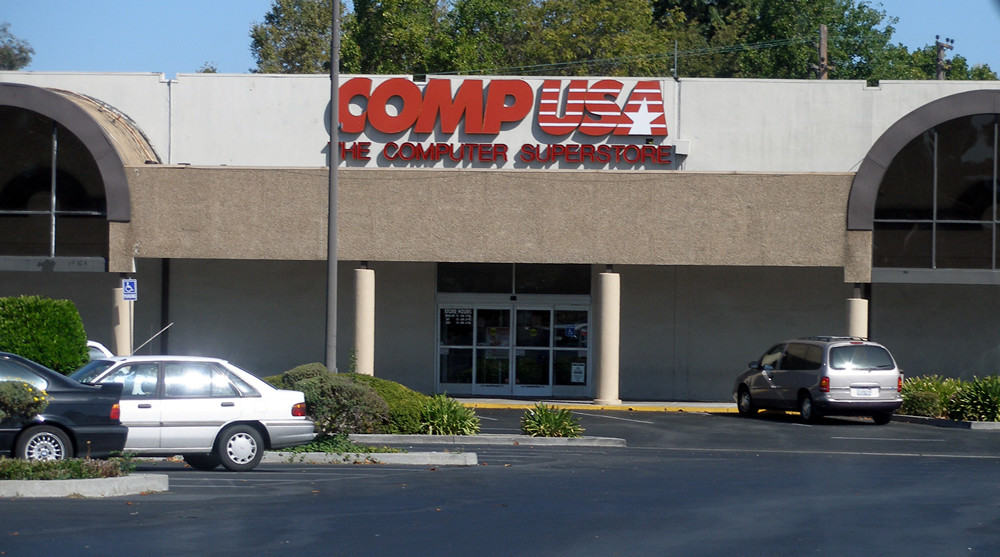
 November 4, 1997: Apple unveils its plan to open small “store within a store” areas inside CompUSA outlets around the United States. Apple-trained employees will staff these mini-stores and sing the praises of the Mac and other Apple products.
November 4, 1997: Apple unveils its plan to open small “store within a store” areas inside CompUSA outlets around the United States. Apple-trained employees will staff these mini-stores and sing the praises of the Mac and other Apple products.
The move gives Cupertino more control over the way its products are displayed and demoed to consumers. While ultimately disappointing, Apple’s CompUSA experiment paves the way for the flagship Apple Stores that will launch four years later and become the world’s most profitable retail outlets.
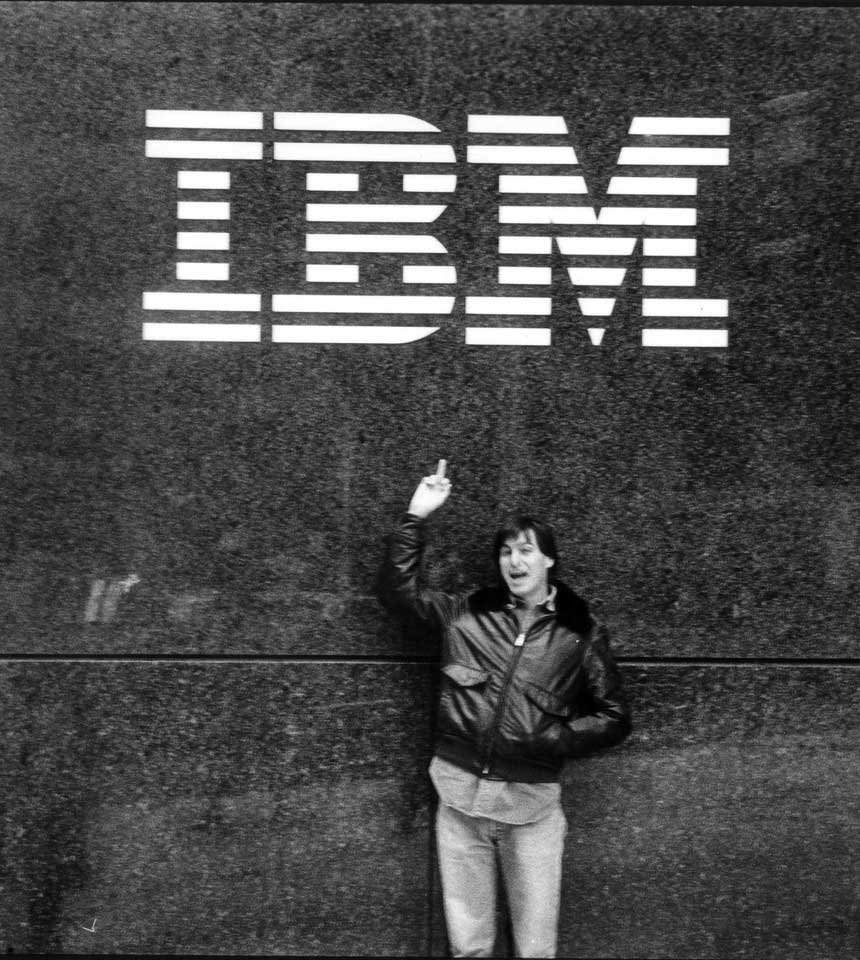
 October 2, 1991: As the Cold War comes to an end, hell freezes over a second time as Apple and IBM sign a deal and agree to put aside their differences. Having been bitter rivals for the past decade, the two tech giants host a press conference at the Fairmont hotel in San Francisco to unveil their new partnership.
October 2, 1991: As the Cold War comes to an end, hell freezes over a second time as Apple and IBM sign a deal and agree to put aside their differences. Having been bitter rivals for the past decade, the two tech giants host a press conference at the Fairmont hotel in San Francisco to unveil their new partnership.
“We want to be a major player in the computer industry,” Apple CEO John Sculley says. “The only way to do that is to work with another major player.”
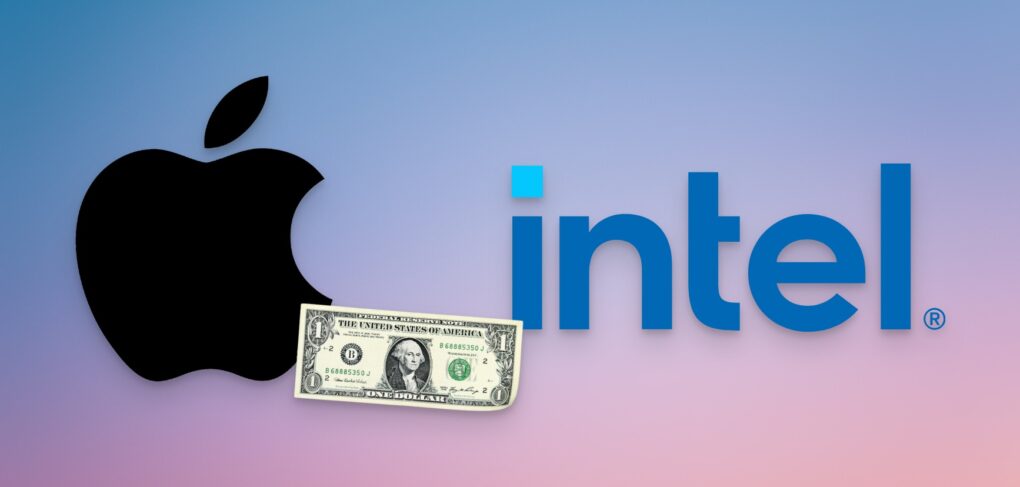
After locking in a $5 billion investment from Nvidia and another $2 billion from SoftBank, Intel reportedly wants Apple as its next major backer.
Apple was once a long-time customer of Intel. However, it eventually shifted to its own in-house chips after Intel failed to innovate quickly enough.
![Awe Dropping visions of the future! [The CultCast] The CultCast logo with the Apple Awe Dropping event logo used to illustrate our predictions game episode](https://www.cultofmac.com/wp-content/uploads/2025/09/The-CultCast-715-Awe-Dropping-predictions-1020x574.jpg)
This week on Cult of Mac’s podcast: With Apple’s Awe Dropping event bearing down on us, it’s time to once again put our professional reputations (and our personal dignity) on the line with our traditional predictions game!
Who will win this time? And will a CultCast listener steal the glory once again?!?
Also on The CultCast:
Listen to this week’s episode of The CultCast in the Podcasts app or your favorite podcast app. (Be sure to subscribe and leave us a review if you like it!) Or watch the video version on YouTube.
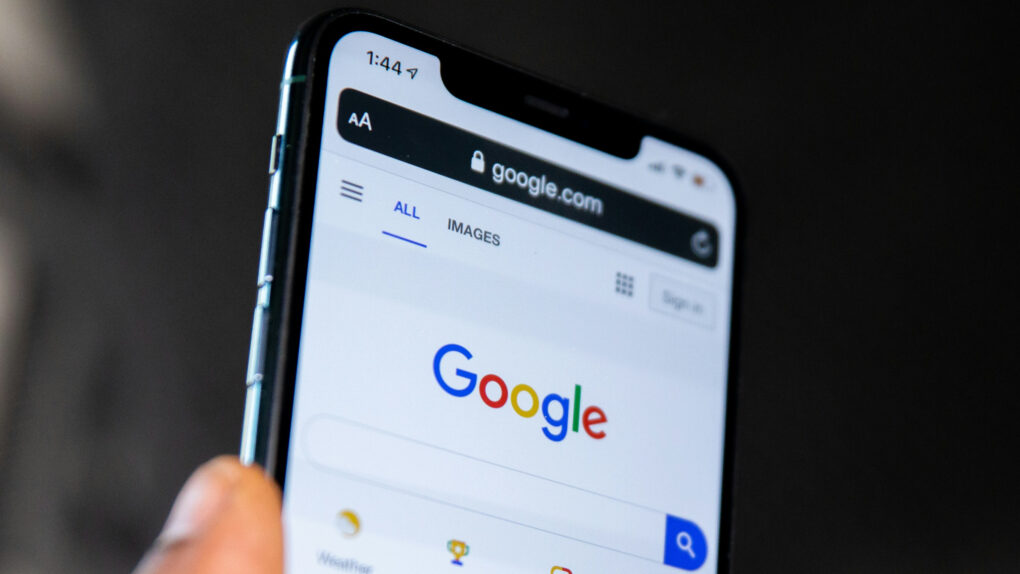
Google can continue its search deal to pay Apple billions of dollars a year for a prime spot as Safari’s default search engine, as long as it’s not an exclusive placement, a court ruled Tuesday.
U.S. District Judge Amit P. Mehta said the proposed banning of such payments — which amounted to $26 billion to Apple and others in 2021, and likely grew since then — would actually help Google. Such a move also posed a “substantial risk of harm” to Apple, consumers and Google’s other partners, he said.
“Google will not be barred from making payments or offering other consideration to distribution partners for preloading or placement of Google Search, Chrome, or its GenAI products,” Mehta wrote in the 226-page ruling released Tuesday. “Cutting off payments from Google almost certainly will impose substantial — in some cases, crippling — downstream harms to distribution partners, related markets, and consumers, which counsels against a broad payment ban.”
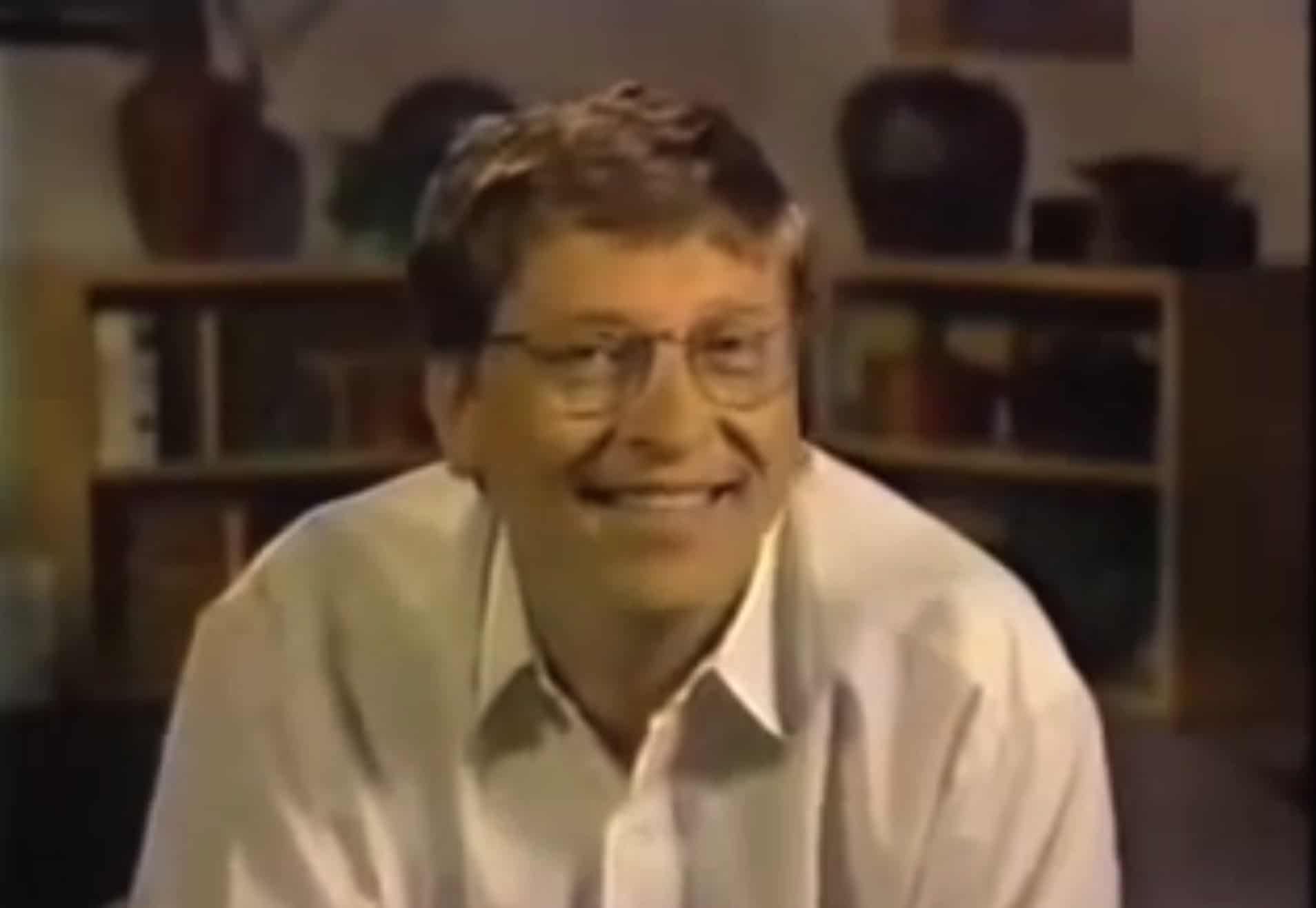
 August 6, 1997: In one of the most famous moments in Apple history, Steve Jobs reveals a $150 million Microsoft investment that saved his company from ruin.
August 6, 1997: In one of the most famous moments in Apple history, Steve Jobs reveals a $150 million Microsoft investment that saved his company from ruin.
Although often presented as an inexplicable gesture of good faith on the part of Microsoft boss Bill Gates, the cash infusion into Apple actually benefits both companies.
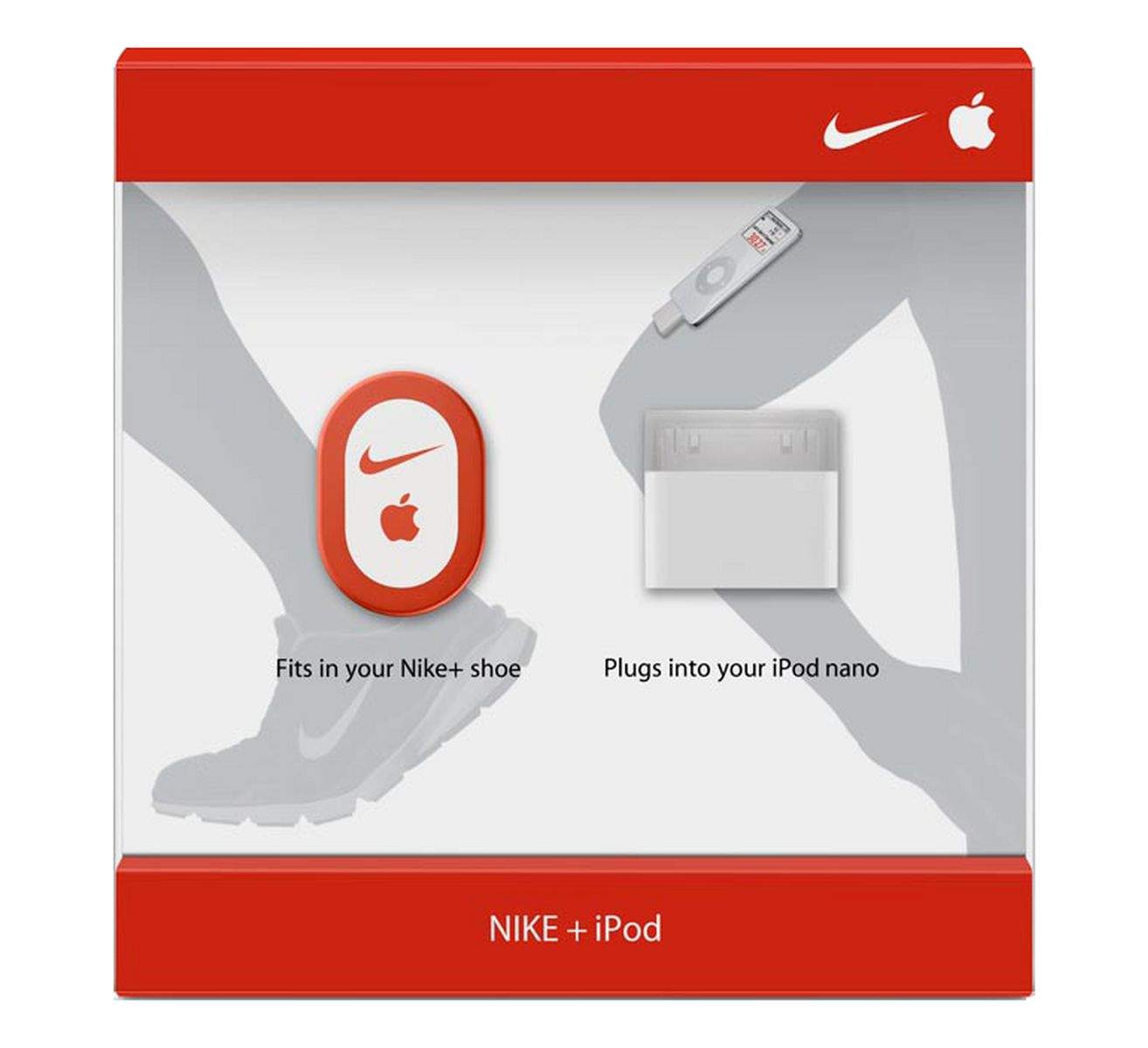
 July 13, 2006: Apple releases its first activity tracker, the Nike+iPod Sport Kit, which combines Cupertino’s popular music player with a smart pedometer.
July 13, 2006: Apple releases its first activity tracker, the Nike+iPod Sport Kit, which combines Cupertino’s popular music player with a smart pedometer.
The product marks Apple’s first step toward the kind of mobile health-tracking initiatives it will pursue in the following decade — most notably through its iOS Health app and the Apple Watch.

 June 4, 1997: Mac clone-maker Power Computing hits its high point as the company’s top exec reaches an agreement with Apple concerning the forthcoming Mac OS 8.
June 4, 1997: Mac clone-maker Power Computing hits its high point as the company’s top exec reaches an agreement with Apple concerning the forthcoming Mac OS 8.
The deal allows the company to start making moves toward an IPO as the fastest-growing PC company of the decade. Things don’t turn out well, though.
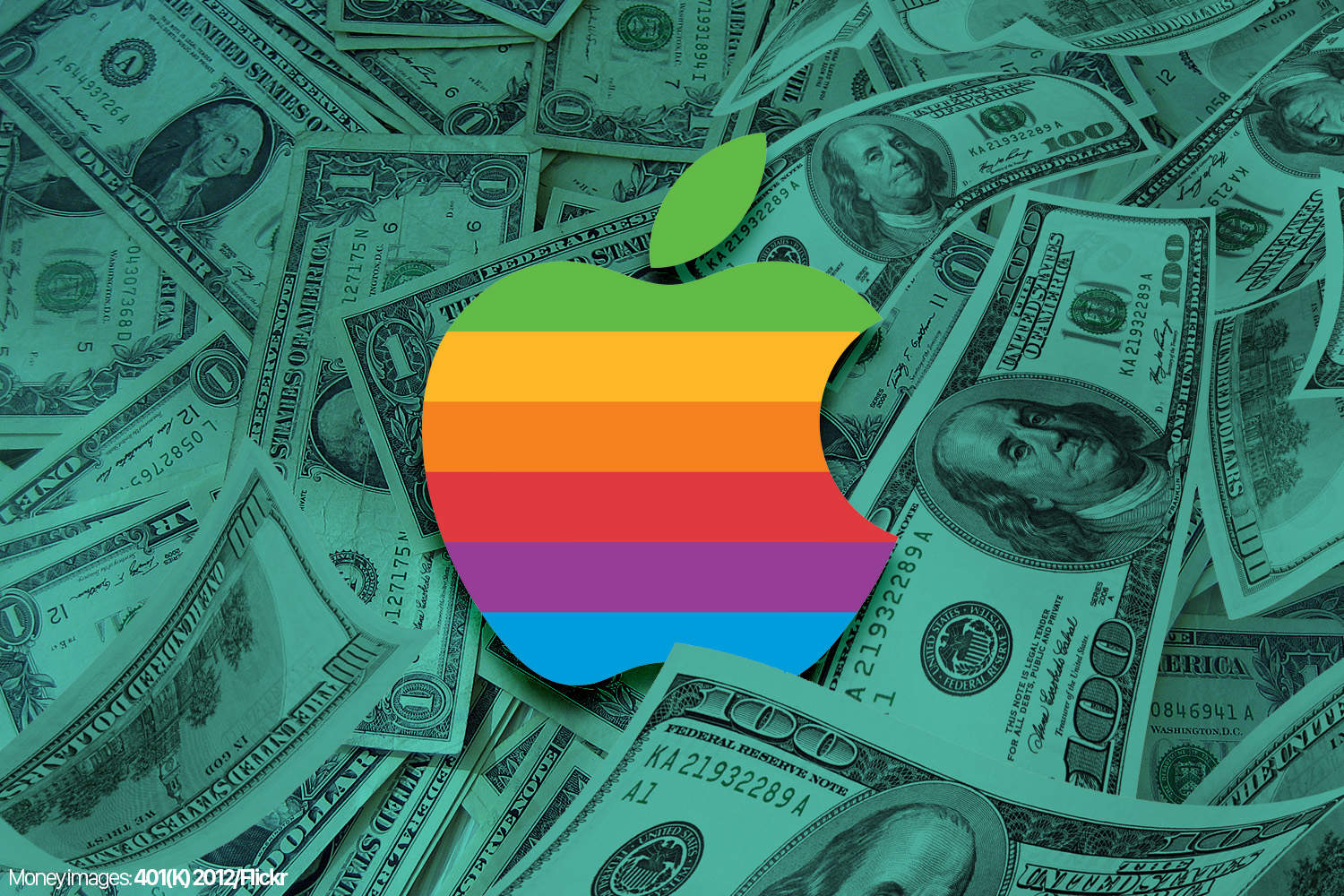
 April 21, 1995: Rumors swirl that Japanese camera company Canon might take over Apple in either a partial or complete acquisition.
April 21, 1995: Rumors swirl that Japanese camera company Canon might take over Apple in either a partial or complete acquisition.
Speculation grows about a possible deal after Apple reveals its latest earnings, which show big improvement but still fall far short of Wall Street’s expectations.
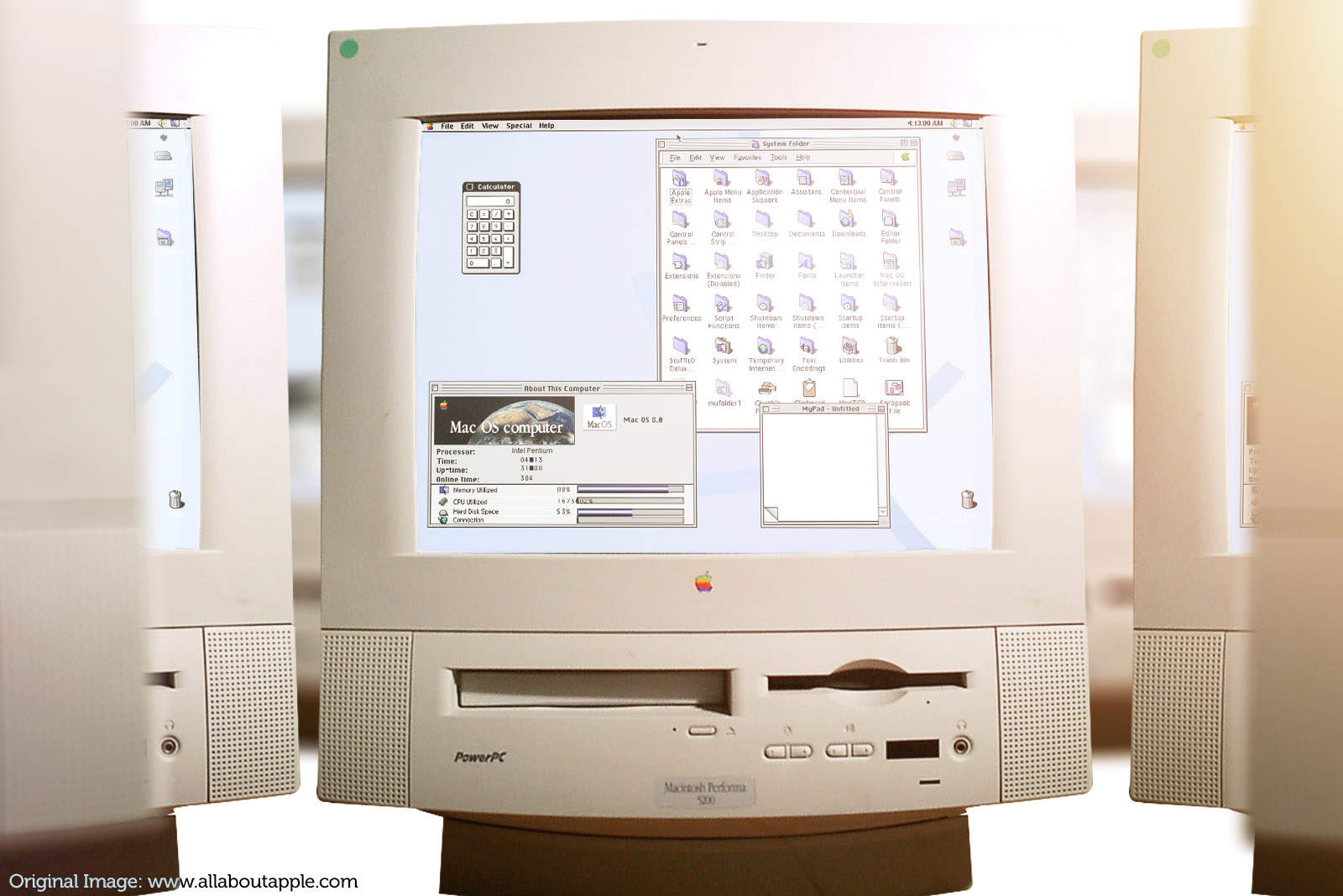
 March 8, 1997: Apple renames the forthcoming Mac OS 7.7 update, calling it “Mac OS 8.” It’s more than just a name change, though: It’s a sneaky sucker punch that ultimately knocks out Mac clones.
March 8, 1997: Apple renames the forthcoming Mac OS 7.7 update, calling it “Mac OS 8.” It’s more than just a name change, though: It’s a sneaky sucker punch that ultimately knocks out Mac clones.
Unfortunately for Mac users, the updated operating system does not deliver the total top-to-bottom rewrite promised by Apple’s Project Copland. However, the renaming strategy turns out to be a brilliant (if underhanded) way of getting Apple out of terrible licensing deals.
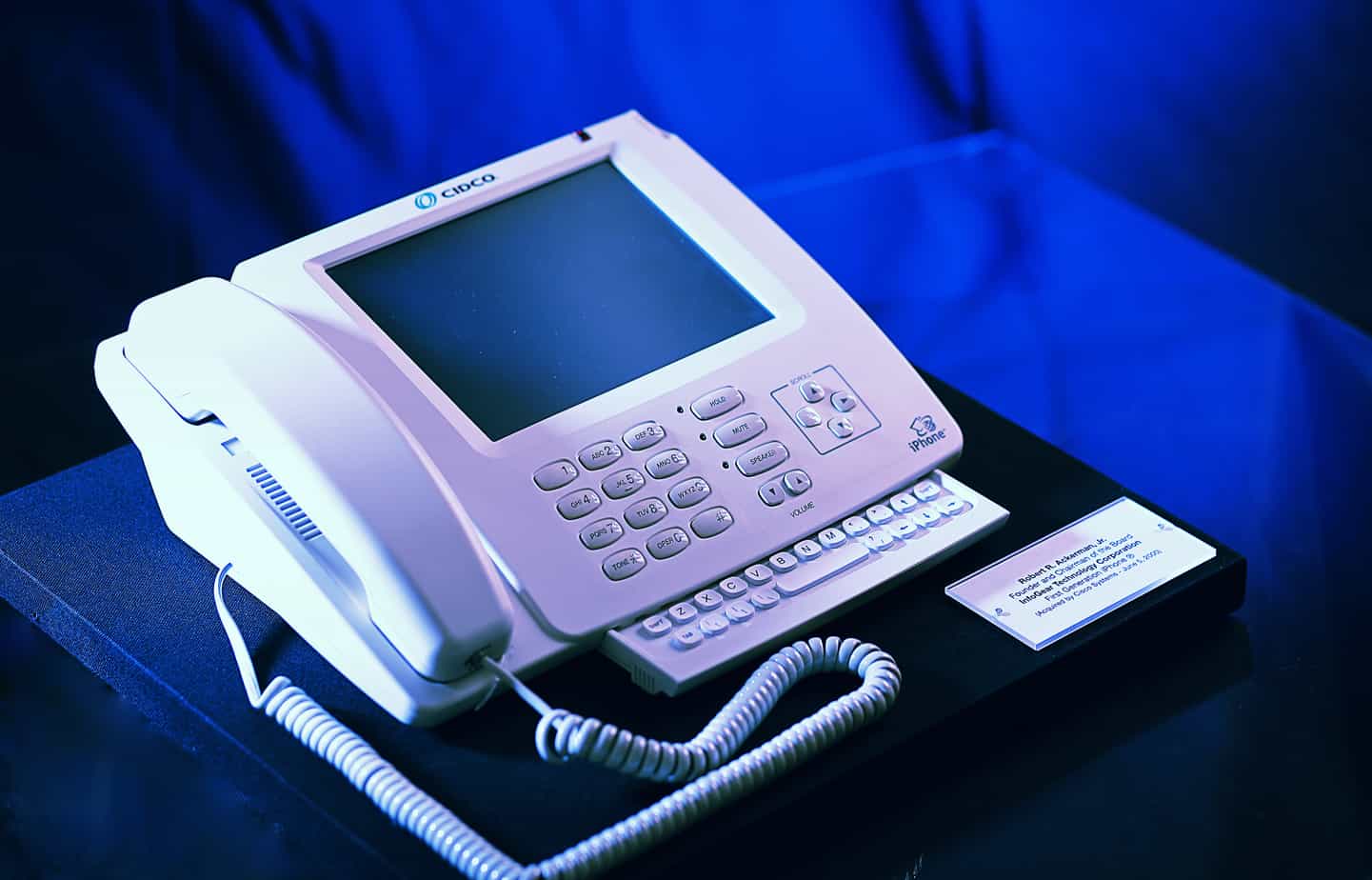
 February 21, 2007: Apple comes to an agreement with Cisco over the iPhone trademark, which Cisco legally owns but Apple wants to use.
February 21, 2007: Apple comes to an agreement with Cisco over the iPhone trademark, which Cisco legally owns but Apple wants to use.
Under the agreement, both companies get to use the iPhone trademark on products throughout the world. The two businesses also dismiss outstanding lawsuits against one another, and agree to “explore opportunities for interoperability in the areas of security, and consumer and enterprise communications.”
It’s a classic bit of Apple CEO Steve Jobs steamrolling the opposition.
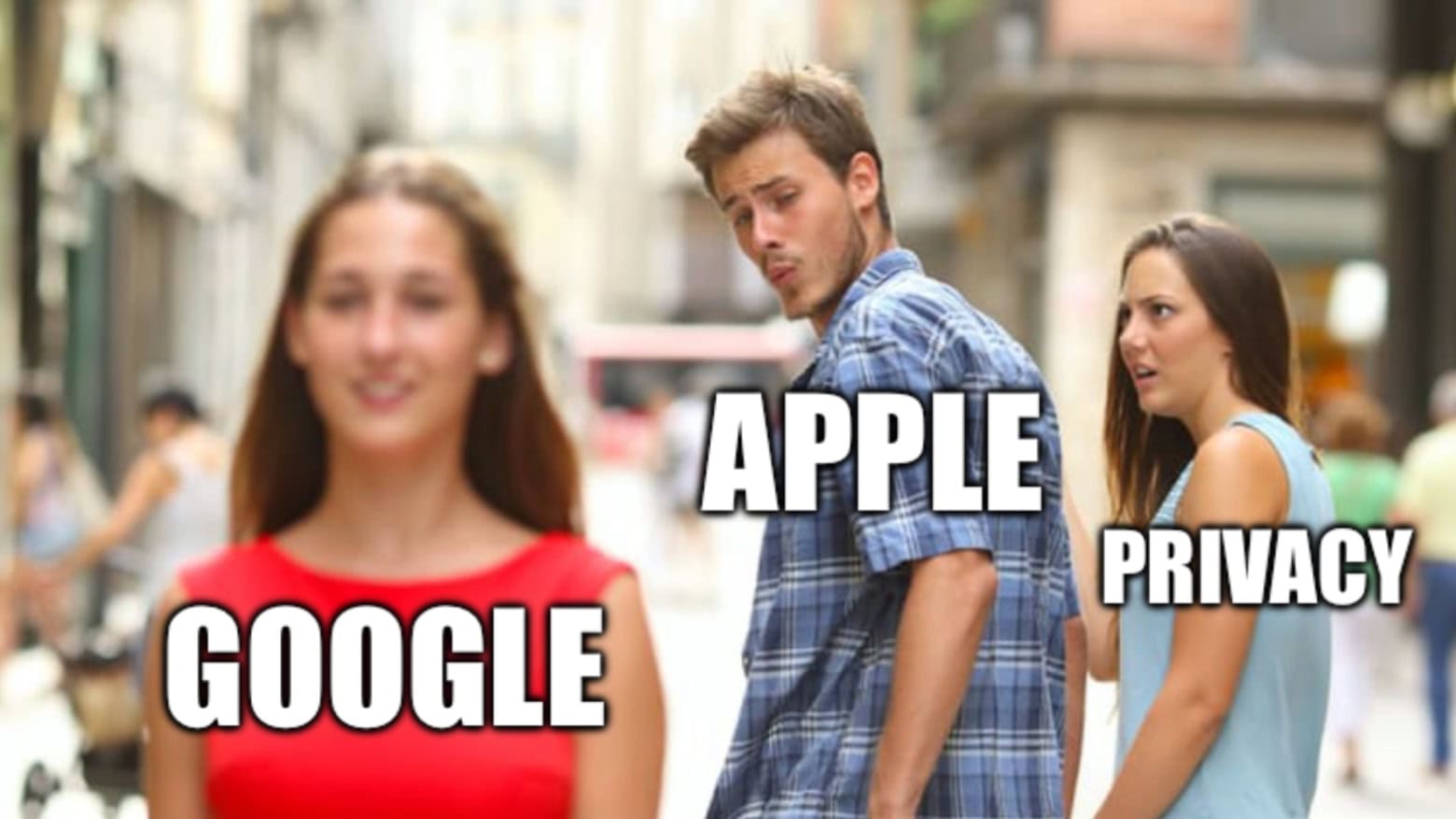
Apple should never have entered into the deal that had Google paying billions every year to be the default search engine for iPhone, Mac, and iPad. And it’s shameful that it’ll take a court order to finally make Apple do the right thing.
A company that claims to carefully protect the privacy of its users shouldn’t be part of an arrangement that steered those users toward Google, whose business is built on privacy violation. Interestingly, some users may find that certain websites require specific browser settings to function correctly, such as ensuring you enable JavaScript on iPhone for a smoother browsing experience.

Apple is not paying OpenAI for ChatGPT access in iOS 18, according to a new report. Neither is OpenAI paying Apple for the privilege of integrating its chatbot into millions of iPhones later this year.
A news story sheds light on the high-profile arrangement between the two companies — and details how it is more than about money.
![What’s next for Apple Card? [The CultCast] Apple Card on an iPhone. CultCast episode 623.](https://www.cultofmac.com/wp-content/uploads/2023/12/CultCast-Apple-Card.jpg)
This week on Cult of Mac’s podcast: It sounds like Apple’s partnership with Goldman Sachs is on the rocks. What does that mean for the future of Apple Card?
Also on The CultCast:
Listen to this week’s episode of The CultCast in the Podcasts app or your favorite podcast app. (Be sure to subscribe and leave us a review if you like it!) Or watch the video live stream, embedded below.

All Apple computers run on chips based on technology licensed from Arm. And it turns out the licensing fee is surprisingly low. Pennies per device.
Apple is one of Arm’s most important customers, and the two have a relationship that goes back to the early 1990s. That’s turned into a sweet deal for the iPhone-maker.
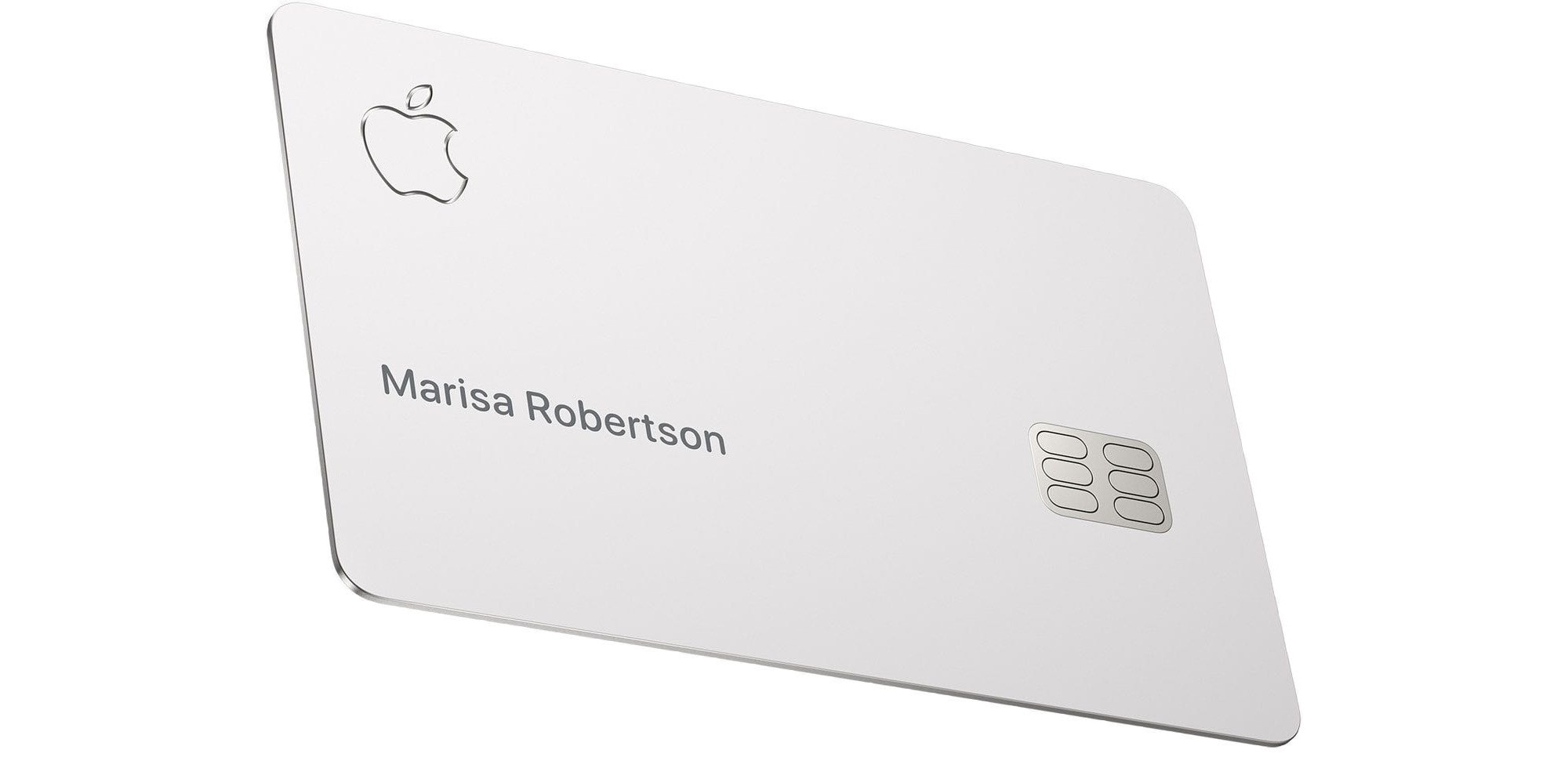
Apple’s partnership with Goldman Sachs for the Apple Card is reportedly coming to an end. The Wall Street Journal says Apple sent a proposal to the bank to exit from the agreement in the next 12 to 15 months.
At the moment, it remains unclear if Apple has zeroed in on another banking partner for Apple Card.

Apple TV+ might be ready to play in the big leagues. Major League Baseball, to be exact. The company reportedly engaged in “substantial talks” with MLB about acquiring the rights to stream games.
If such a deal comes together, it would be a game-changer for Apple’s streaming service.

Google’s deal with Apple, which ensures that it remains the default search engine in Safari across all Apple devices, is the subject of a new class-action lawsuit against both companies and their CEOs, Sundar Pichai and Tim Cook.
A lawsuit filed in California this week alleges that the two Silicon Valley giants have a non-compete agreement in internet search that violates U.S. antitrust laws and prevents Apple from launching a search engine of its own.

Nissan is the latest automaker mentioned as a possible manufacturing partner to produce the rumored Apple car.
Makoto Uchida, Nissan’s CEO, was asked about teaming with Apple at a press conference Tuesday. Uchida responded that Nissan should be looking to “work with companies that are knowledgeable, with good experience, through partnership and collaboration,” according to The Wall Street Journal.
That’s not exactly a “yes,” but it’s certainly not a “no,” either.